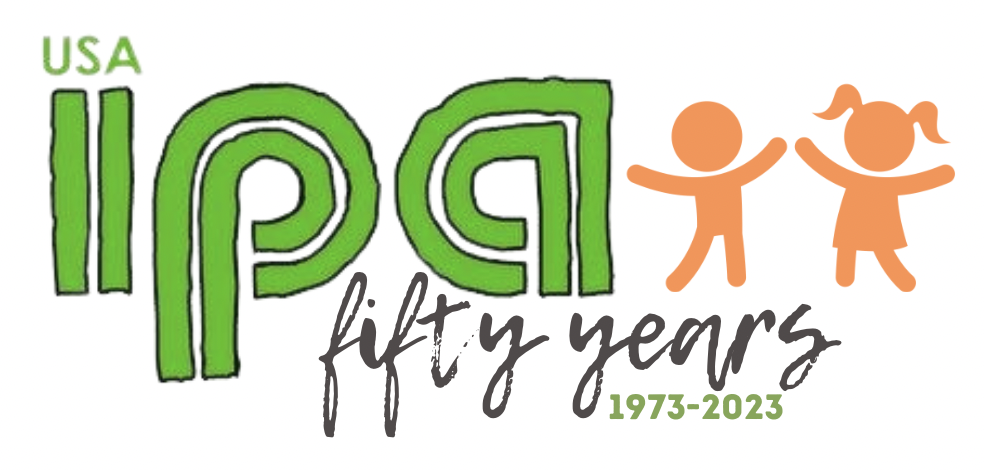IPA USA has identified a list of 12 fundamental, guiding principles that provide the direction for our organization, services, resources, and communications.
What is Play?
- Play is the work of childhood. Play is biologically driven. There are many types of play. The highest, purest form of play is spontaneous, freely chosen, intrinsically motivated, pleasurable, purposeless, and free from conflicts. For younger children, it also contains symbolism and elements of pretend.
- Guiding Principles
- Play, along with the basic needs of nutrition, health, shelter, and education, is vital for the development of all children from birth to 18 years.
- Play is integral and necessary for social, emotional, cognitive, language, and physical development.
- Play facilitates brain growth, especially in the frontal cortex, where essential cognitive functions reside, including attention, self-regulation, working memory, and cognitive flexibility, all known as executive function.
- Many foundational skills can only be developed through play and thus justify the essential need for recess for younger children and breaks for older children.
- Play opportunities are needed for children both indoors and outdoors.
- Play needs differ among the age groups: birth to age 2, pre-k, early elementary, upper elementary, middle school, and high school.
- Schools, especially pre-K and elementary schools, need help understanding that young children learn best through play.
- Schools need help and support in providing meaningful and appropriate play opportunities, such as experiential, inquiry, integrated, and emergent approaches to curriculum.
- Families need help recognizing that play is necessary for healthy development, and that family play also bonds the family and helps build happy childhoods.
- Community services and regulators, such as parks and recreation, city planning, playground inspectors, and housing developments, need help understanding why opportunities for risky play should be included in their planning.
- All types of play are essential (e.g., physical play, such as running, climbing, swinging, etc.; block and construction play; play within art and music; games with rules; rough and tumble play; risky play; nature play; role-playing; etc.), but child-directed, spontaneous play is the most important type of play during the early years of birth through age eight.
- Children have the right to play as guaranteed by the 1989 United Nations Convention on the Rights of the Child.
Affirmation
IPA USA is determined to sustain the momentum created by the International Year of the Child in 1979 to influence world opinion for the improvement of the lives of children; and:
AFFIRMS its belief in the United Nations’ Declaration of the Rights of the Child, which in Article 7 states, “The child shall have full opportunity to play and recreation, which should be directed to the same purposes as education; society and the public authorities shall endeavor to promote the enjoyment of this right;” and endorses its belief in Article 31 of the Convention on the Rights of the Child.
RECOGNIZES that the population of children in developing countries is three-quarters of the world’s total child population and that efforts directed at the promotion of education and literacy, and the stopping of environmental deprivation would improve the capacities of the poorest.
IPA USA is determined to maintain the momentum given by the International Year of the Child in 1979 to encourage the global community to improve the lives of children and adults.
AFFIRMS its commitment to working with other national and international organizations to ensure basic conditions of survival for all children in order that they may fully develop as human beings.
ACKNOWLEDGES that each country is responsible for preparing its own courses of public and political action in the light of its culture, climate and social, political and economic structure;
RECOGNIZES that the full participation of the community is essential in planning and developing programs and services to meet the needs, wishes, and aspirations of children;
ASSURES its cooperation with UN agencies and other international and national organizations involved with children;
APPEALS to all countries and organizations to take action to counteract the alarming trends which jeopardize children’s healthy development and to give high priority to long term programs designed to ensure for all time…
